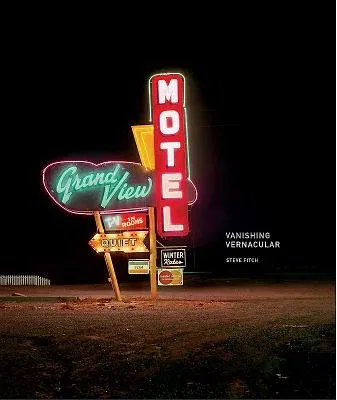Finalist 2018 New Mexico-Arizona Book Awards - Arts Books
Steve Fitch is among America's most well-known chroniclers of the
American West since the days of Easy Rider. He has been photographing
examples of the West's changing vernacular landscape and vanishing
roadside landmarks for more than 40 years. In his new book, he presents
both the ancient and the modern by way of petroglyphs, neon motel signs
and hand-painted business signs, drive-in movie theater screens, and
radio and cell towers. All of them are now endangered because of the
advent of the Interstate Highway System and corporate franchises.
In this fascinating and comprehensive account, we are able to join in
Fitch's expansive journey, truly an odyssey, as represented in the
book's 120 unforgettable photographs, all sequenced to mimic the open
road--both during day and night. Fitch explains the project in his
informative introduction, in which, interestingly, he suggests that the
petroglyphs of the ancient Pueblo people have endured far better and
longer than anything made during the last sixty years. Curator Toby
Jurovics, in his insightful concluding essay, positions Fitch's work in
relation to that of the practitioners of the photographic style known as
the "New Topographics" and Fitch's own view of photography as a visual
form of cultural anthropology.
Vanishing Vernacular: Western Landmarks is sure to become a modern-day
classic, a book that will be all the more revered as America and
Americans move farther away from the highways of the past. That economy
and roadside culture are vanishing like endangered species, but Fitch
was along for the ride. In sharing that past, he has been witness to his
own form of historic preservation.

